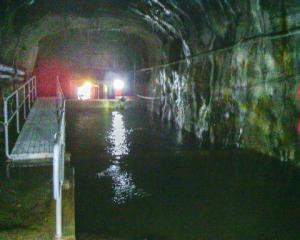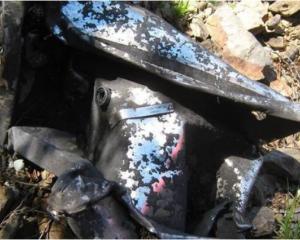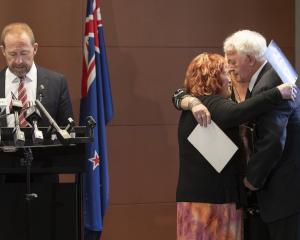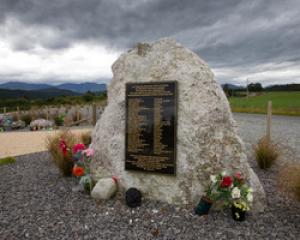It takes a tragedy to bring out the poetic soul of the nation. Or so it would seem from the effusion of versifying that has emerged in the wake of the terrible Pike River mine disaster.
I do not doubt the sincerity or heartfelt disposition of those who've been so touched as to compose their compassion and shared grief in this manner, but there is this small, insistent inner voice that nags about an instant dispatch of emotion - as if the loss the West Coast community, and the country, has suffered can be contained in a packet labelled "poem", composed off the cuff for a radio commentary or a newspaper column.
Radio host, sometime balladeer and rhymester Gary McCormick was first out of the blocks, reciting his tribute Seventeen - in memory of Joseph Ray Dunbar and all those who died in the Pike River mine - on radio and across closing credits of the non-stop television coverage of the disaster.
Before he found fame as a radio host salary man, I seem to recall Mr McCormick had form as a sort of Sam Hunt sidekick, a bard of the boulevard with a ready wit, a wry observational intelligence and more than a splash of the common touch.
He has a rich, resonant voice as well, so his offering - penned to be heard, rather than written in stone and worried over - had the virtue of an approachable spontaneity:
Joseph Ray Dunbar.
Climbed aboard and headed on down.
A smile and a wave and a joke amongst men.
The biggest day of Joseph's life.
You caught the train, Joseph.
You took the train too soon.
You caught the train before your time.
Then up north aways last weekend I caught a glimpse of what I took to be a poetic response in The Dominion Post: erstwhile Radio NZ Morning Report host Sean Plunket waxing lyrical on the tragedy, but the nagging voice - perhaps churlishly - turned my head away.
I arrived back at work to find in my email queue a substitute Chris Trotter column, a poem, which arrived too late to make deadline for last week's slot.
I have yet to consider its merits, although Mr Trotter has a fine way with words and a track record of compassion and support for the working man.
Despite the reservations, poetry has a distinguished track record as a marker of national occasions of solemnity, mourning or celebration.
The function usually resides in the position of poet laureate.
The United Kingdom has had one since the reign of King Charles II. New Zealand got its own official laureate in August 2007 with the establishment of the New Zealand Poet Laureate Award, funded by the government and administered by the National Library.
The incumbent is Bluff poet Cilla McQueen, preceded when it was the Te Mata winery laureate by notables such as our own Brian Turner and Hone Tuwhare as well as Elizabeth Smither.
But to get back to the business of composing verse to order. Of poetry I know only a little, but have a sense of how the most resonant and enduring is hewn out of language - like diamonds from stone.
Or is found in a condensate of feeling and words, truth dripping irregularly like moisture out of cavernous rock.
Jeffrey Paparoa Holman, a poet from Blackball on the West Coast, and a very good one, wrote a poem on the Strongman tragedy, which recalls a trip down the mine a decade after the event. It's called Inferno (Strongman Mine 1967) and is reprinted in this week's Listener magazine.
The Strongman mine is not far distant from Pike River and carries echoes of this more recent tragedy - "It's not every day you can find a guide/to show you around a working graveyard."
It has the weight of time and distilled reflection, carefully wrought:
To get to the lip of the tomb, you had to bend
low and crawl to the junction of roof and floor.
A moaning wind as chill as a widow's keening
sucked the light from chaos with its screaming.
The sort of verse that makes you shiver.
• Simon Cunliffe is assistant editor at the Otago Daily Times











